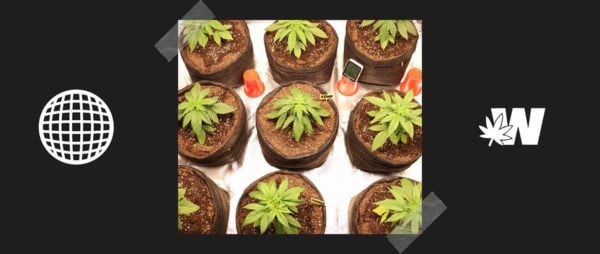
Hemp and marijuana, who knew plants could cause such a stir, right? Both are part of the cannabis family, a botanical clan with colorful relatives like Cannabis Sativa, Cannabis Indica, and the lesser-known Cannabis Ruderalis. Oh, they’re a fun bunch, yet easily confused. Now, among this leafy lot, our focus is on hemp and marijuana, both living under the roof of Cannabis Sativa. But they’re not identical twins. Picture them as cousins, one being the quiet type with low THC, that’s hemp, and the other—marijuana—the one with high THC, maybe the party-goer. It’s the THC, really, that’s a big deal—it’s what gives marijuana its kick, unlike hemp which is more, let’s say, tame.
This post is intended as information and for general knowledge only. It is not a substitute for medical advice, diagnosis, or treatment. It is recommended that you talk to a healthcare professional about this before introducing cannabinoids into your daily routine (especially if you have been diagnosed with any medical conditions or are under any medication). It is not recommended to drive or operate any machinery when using hemp-derived products. Use responsibly!
Legal Differences and Status
The Controlled Substances Act in the U.S. plays tough, categorizing both under its watchful eye. Though hemp, exhibiting good behavior with its low THC, gets the friendly nod. It’s like being on the guest list for staying out of trouble. Marijuana, well, it’s often relegated to the murky legal waters, trying to find its footing. Move beyond U.S grounds and see how countries juggle these green elements differently. Some have embraced them with open arms; others still show the cold shoulder. But industrial hemp? It stands apart thanks to its role in eco-friendly pursuits, earning a slightly better handshake from the law. Important to remember how differently laws see medical marijuana and recreational stuff—two kids playing by different rules.
Chemical Composition and Effects
Pop into the lab for a moment and we’ve got THC and CBD, chemical siblings with their own attitudes. THC loves the spotlight, showing off with those psychoactive effects. CBD’s the relaxed sibling, promoting calm without the high. Take CBD oil—peace in a bottle, non-intoxicating. Hem versus marijuana CBD? It’s all about where they come from. A bit like two wines from different vineyards, both unique. As THC levels rise, so does the adventure. Think of medical marijuana; it’s like a Swiss army knife, versatile in addressing ailments. CBD? A trusted friend for mental health without the political lobby.
Usage and Applications
Hemp likes to show off its versatility. This industrial champ transforms into textiles, waving the hemp fiber flag. Hemp seed oil? Superfood alert with major browny points for being green. Meanwhile, in medicinal circles, marijuana steps up for addiction treatments, skating into medical cannabis programs with style. Consumers these days are spoiled—choices wide-ranging from CBD gummies to smouldering THC products. Here’s a warning—to know where the risks are, especially with marijuana’s addictive tendencies lurking in shadows.
Botanical Differences

In plant personas, hemp and marijuana are like chalk and cheese, yet from the same family tree. That’s a twist for you! Hemp is a tall, slim model plant, often gracing fields as far as eye can see, while marijuana’s shorter, bushier, with sticky, resin-rich buds. Real plant art! Cannabis Sativa L. mode-bites both varieties. As for growing, hemp’s laissez-faire, thrives easily, whereas marijuana, like a picky gourmet, needs just the precise growing prescriptions, prim and pampered.
Economic Impact
The green rush got everyone talking dollars. Hemp, not to be upstaged, finds its niche in textiles, sneak-peeking into superfoods, and tapping into the eco-conscious movement. Cannabis products? They’re betting big on the medical and recreational marijuana frontier. Cash flows carve their path from hemp’s budding fields to explosive cannabis flower fame. Each player’s racing to make an economic mark—just in different lanes, that’s all.
Ethical and Social Considerations
Ah, the social angle. Hemp skips along mostly clean-cut, while marijuana’s still shaking off its old spiky reputation. But both work to shift paradigms (oops, not allowed)—views on mental health. The addiction angle? It’s serious, being eyes wide open about rehab’s evolving landscape. Looking ahead, there’s an intriguing dance of public opinion to watch, bending and swaying to fresh legal narratives.
Conclusion
Finally, what’s the big takeaway? It’s a blend of how the law sees them, what’s in their genetic makeup, and the jobs they’re filling from material pursuits to science’s health focus. Eyes peeled for where this all leads, isn’t it? If curiosity calls, there’s a vast pool of resources on legality intricacies, health insights, and more products waiting to be explored. Giving room for thought, one nug at a time!